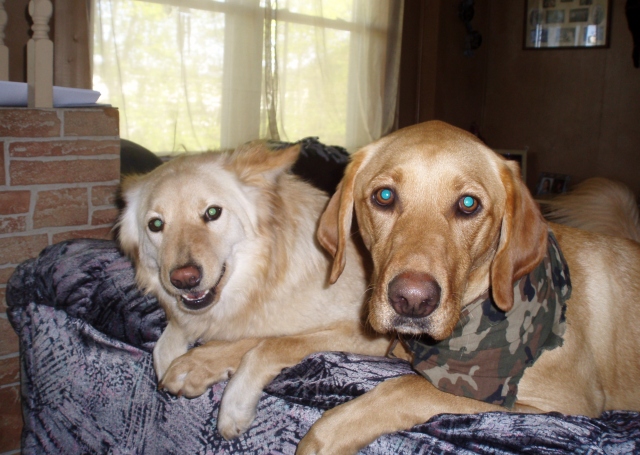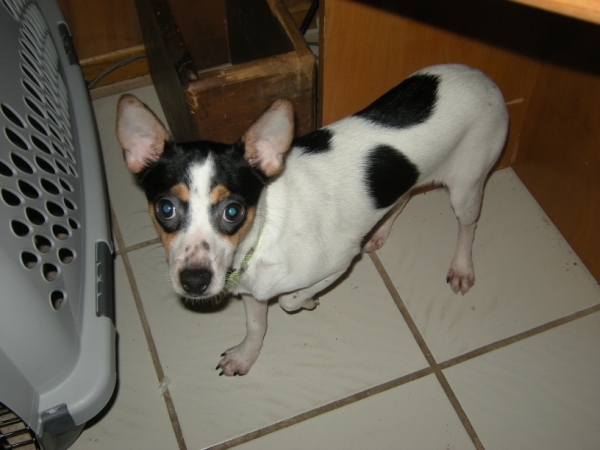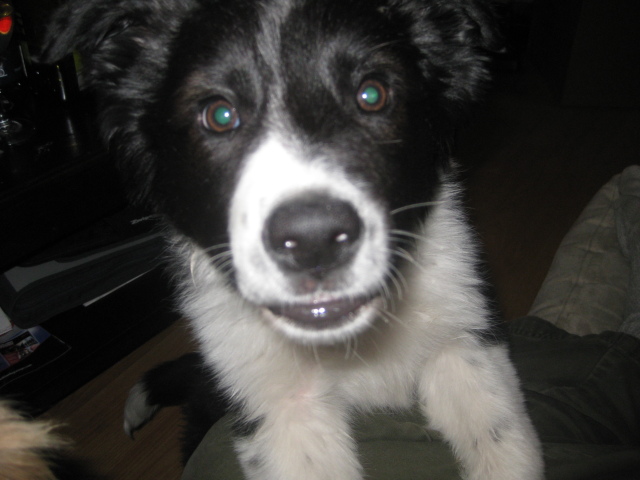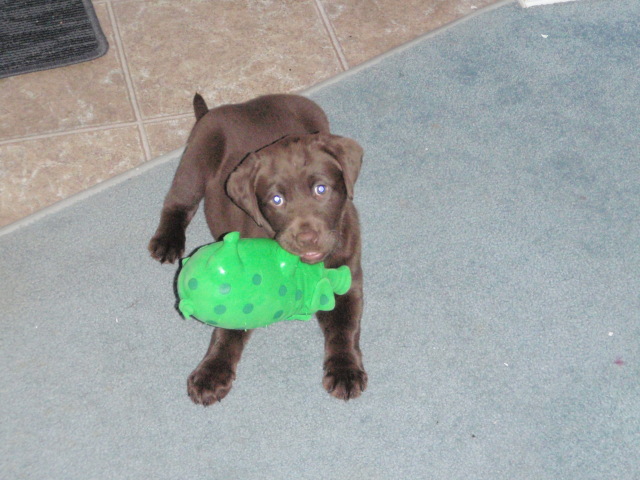QuestionI have had puppies before but my new puppy Piper hate the dog crate.. She is a really good puppy until we have to crate her to go to bed or to leave for a little while..I do not work so she is with me every minute the rest of the day. She will just cry and cry and sometimes seems like she is screaming.. :o( I have to crate her because where we live when maintance comes in they want them crated.. She does stop after what seems like a long while but it breaks my heart to hear her do this.. Is there anything I can do to make this time better for her to to help her get use to it easier.. Thanks Valerie
AnswerHi Valerie,
Thank you for you for your question.
What you need to do is create a positive association for Piper with her crate. You can do this by feeding her in her crate and by giving her things like a Kong with peanut butter or spreadable cheese packed inside. You could also moisten her kibble and pack that in there with a little honey or peanut butter to make it tastier.
I would recommend keeping the crate door open so she can go into the crate at will and avoid closing the door unless necessary. If there are two doors on your crate, leave them both open during the day and when you are home for her to come and go at will. Place the crate in a room you are in, but a quiet place out of the flow of traffic.
Where is the crate located? i would recommend placing in your bedroom at night so she can see and be with you. You could try some soft music to calm her, such as Through A Dog's Ear (http://throughadogsear.com/). You could also try a ticking clock on the outside of the crate, which would simulate a heartbeat. Make sure if you do this you pick it up when she is out of the crate so she doesn't chew it.
I would also recommend you make going into and out of the crate a game. If you know how to teach a dog to target your hand with her nose, you can have her target it to lead her into the crate and then back out, making it a game and making going into the crate a non-issue. You could also toss toys in her crate -- even play fetch -- but make sure you do not bribe her into going into her crate or trick her into going in.
You can also desensitize your puppy to the crate by having her follow (willingly) your finger into the crate - or waiting until she goes into the crate - or have her target the palm of your hand to go into the crate - then close the door, click (if you know how to do clicker training)at the moment the door is closed, then open the door and give her a treat. You could build the duration of the closed door, clicking while the door is still closed just before you open it. If you have not had instruction in clicker training, skip the clicking and just open the door and give a treat.
You can also feed treats through the crate, especially if you have a wire one. Use really high value treats (something your puppy finds really yummy and likes more than other treats, such as chicken).
Be careful not to respond to her crying or she will learn that crying gets what she wants and she will continue to do it or do it even more. However, I don't believe in causing the dog any unnecessary stress, so try to make the crate a pleasant place to be, and be cognizant of when you put her in it. She is probably not reacting to the crate so much as what it has come to mean - that she will be separated from you.
It is necessary for her to learn to like her crate - all dogs should learn this because as you know, they may need to be crated during their lives - at the vet's, to be transported, or in your case, when maintenance comes around.
I recommend only crating when necessary and only as long as necessary until your puppy is housebroken and safe alone at night (won't get into things and harm herself) or when your gone.
Really try to avoid leaving her in the crate any longer than necessary.
Also, since you are home during the day, be careful she doesn't tend to develop separation anxiety. Make your comings and goings non-eventful, that is, avoid giving her a lot of attention on arrival home or when leaving, or making a big deal out of your coming home or leaving. Try to leave the house during the day so she gets used to you being gone and coming home.
Hope that helps.
Cindy

 Crystal the beagle
Question
Crystal
Crystal is 8 1/2 years old,she is a be
Crystal the beagle
Question
Crystal
Crystal is 8 1/2 years old,she is a be
 Snapping/Snarling problem
Question
Gypsy and George
We have an 18 month old pure
Snapping/Snarling problem
Question
Gypsy and George
We have an 18 month old pure
 Potties insides but NEVER outside...
Question
This is my buddy :)
I have a 6 month old Fox T
Potties insides but NEVER outside...
Question
This is my buddy :)
I have a 6 month old Fox T
 Border collie help
Question
Miaya
Hi
We have a 16 week old border collie.
Border collie help
Question
Miaya
Hi
We have a 16 week old border collie.
 Puppy help!
Question
Roxy!
Hello! I am so glad I found this site:)
Puppy help!
Question
Roxy!
Hello! I am so glad I found this site:)